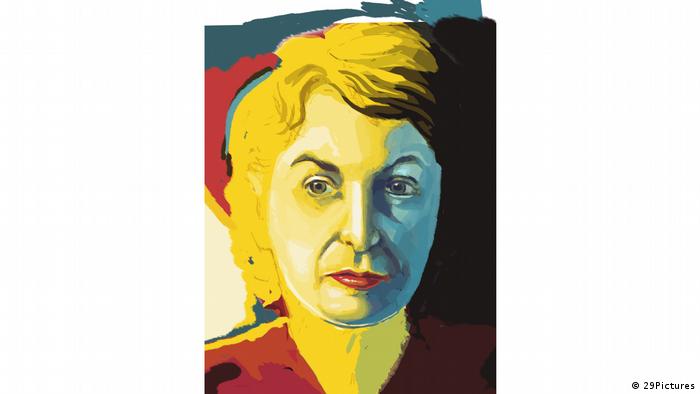Who will win the Golden bear? A look at the reviews of film critics could give a hint. Betting should be but not because their preferences do not always coincide with those of the Jury.

These days, I was sitting at a Berlinale screening randomly next to a movie critic on whose judgment I trust. He nodded while watching the movie, which is why I was curious as to whether he would run down the next day in his Review. He did not. While other critics complained of the length of this movie, he had to report only Positive. If you slept through half of the movie, he feels, probably not so long.
Film critics have the great privilege to see on a Festival within a short period of time a variety of films – which is not always as easy as it sounds. In the ideal case, you devote yourself to the 20. Film with the same patience as the first. The reality is often different.
A critic working for the daily press, must quickly form an opinion within a few hours or a critique of writing, which includes all the essential aspects of the discussed work. Although you know the rule, well, your opinion is ultimately as subjective as that of any other spectator.
Zero to four stars
The magazine “Screen International”, asks international critics of the Berlinale as well as at other major film festivals such as Cannes and Toronto – your evaluation of the Competition entries. The rating goes from four (“Excellent”) to zero stars (“Bad”). The results appear in the daily print edition of the “Screen”. These reviews include a Review of why the tastes of the critics can hardly capture.
Particularly striking is the reviews of the Italian critic and producer Paolo Bertolin in this festival year. Fatih akin’s controversial Film “The Golden glove” received from Bertolin, the highest rating, while half of the other experts gave him a bad review. So far, the Italian is also as the only critics of the opinion that some films, no star deserved: François ozone, “Grâce à Dieu” and Agnieszka Holland’s “Mr. Jones”.

“The Golden glove” by Fatih Akin has been among the critics, after all, a big Fan from Italy
Until Thursday, three films were in the favor of the critics in the front: “A Tale of Three Sisters” by Emin Alper (photo above), “God Exists, and Her Name is Petrunija” by Teona Strugar Mitevska and “Öndög” by Wang Quan’. Three competition films were: Isabel coixet’s “Elisa y Marcela”, Nadav Lapids “Synonymes” and Wang Xiaoshuais “So Long, My Son.”
Unanimity is not a guarantee
Although the “Screen”-list of rankings can reflect a tendency, however, the past has shown the greatest enthusiasm and unanimity of the critics is no guarantee that the festival jury will evaluate the films as well.
As Ken Loach 2016 with “I, Daniel Blake” won the Golden palm in Cannes, was the Surprise among the critics In their ranking of the Film had reached only 2.4 points. The German contribution, “Toni Erdmann” by Maren Ade, had a score of 3.7 out of four stars, however, the highest score in the history of the “Screen” and went away empty-handed.
Also the winner of the Golden bear at the Berlinale 2018 defied the criticism of opinion. Adina Pintilies “Touch Me Not” was in the Ranking only 1.5 stars, only two posts had been assessed in that year, even worse.
According to sharp criticism of the decision of the Jury was at the time: “The superficial, dim-witted winner of the Golden bear is a disaster for the Festival,” wrote Peter Bradshaw in the Guardian. The critic for the U.S. magazine “Time”, Stephanie Zacharek, who was a member of 2018, the competition jury, told the DW that you are reading Bradshaw, his opinions have, however, had no influence on their verdict. “It is, of course, that I am the movie love and our choice.”
Criticism is reduced to a Minimum
Short reviews with points and stars are popular because they break a criticism to the Minimum. Detailed movie reviews you can not replace it, because there are also shades of observance.
The at the Berlinale have shown a documentary film “What She Said: The Art of Pauline Kael” is a tribute to the art of film criticism, by presenting one of the most influential critics. In a long male-dominated domain succeeded Pauline Kael to influence the style of the film criticism in a sustainable way. “It was no matter, whether you’ve seen the movies, about which they wrote. You were with your prose come alive,” said Stephanie Zacharek, which is also seen in the documentation.

Pauline Kael broke through a man’s domain and is one of the most influential figures of film criticism
To earn after a series of movie reviews for a radio show and the attempt, as a writer, Kael, in 1967, film critic at “the New Yorker”. Previously, she had published a rapturous critique of “Bonnie and Clyde”, which most of the critics rated more ambivalent. Also, the audience took him in initially poor, until kael’s criticism made him, ultimately, to a box-office hit.
Scorsese led to a breakthrough
The documentary film by Rob Garver Chronicles how Kael movies of the early 20th century. Century influenced later so influential was that Directors like Martin Scorsese and Brian de Palma helped by its meetings to make the breakthrough.
The reader familiar your judgment, even if it is from the assessment of other critics of the difference, the celebrated a movie unanimously as a masterpiece, such as Stanley Kubrick’s “2001: a space Odyssey”, the Kael as a “monumental idea-less Film”.
Whether critics and the Berlinale Jury this year are agreed, it will show the awards ceremony on Saturday. Perhaps a work that journalists rate by mutual agreement as a monumental action wins. This would, after all, are fuelling new discussions – and exactly that is what the film critics.